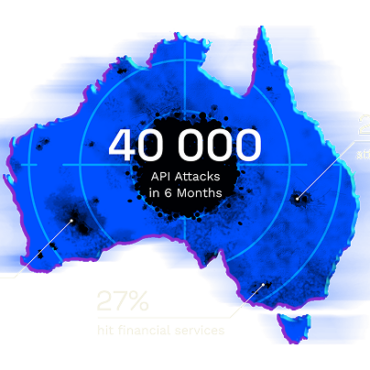What is FinOps and Why Do We Need Cloud Financial Operations
Updated 28 Mar 2023
What is Cloud FinOps?
FinOps, or Financial Operations, is a relatively new and rapidly growing field that is becoming increasingly important in today’s cloud-driven business world. While many people are often confused about FinOps meaning, it is the practice of optimizing the cost and utilization of cloud infrastructure, applications, and services, with the ultimate goal of reducing waste and increasing efficiency in the use of cloud resources. In short, it’s about ensuring that organizations are getting the best possible value from their cloud investments.
There are many reasons why cloud financial operations are becoming more and more critical. First, cloud computing has become an indispensable part of modern businesses. More and more organizations are relying on cloud services to run their operations, store their data, and serve their customers. As a result, cloud spend is becoming a significant portion of many organizations’ budgets, and it’s important to ensure that this spend is managed effectively.
Introducing Accountability to Cloud Spend
Cloud spend has become a critical aspect of modern business operations, and it’s essential that organizations have the right tools and processes in place to ensure that their cloud investments are managed effectively. However, despite the growing importance of cloud computing, many organizations still struggle to bring accountability to their cloud spend.
One of the biggest challenges organizations face when trying to manage their cloud investments is visibility. With so many different types of cloud services available, each with its own pricing models and terms, it can be difficult to understand exactly how much is being spent on cloud services and where that money is going. This lack of visibility makes it challenging to identify areas where savings can be made and to ensure that the organization is getting the best possible value from its cloud investments.
Core Stakeholders of Cloud Financial Management
The core stakeholders of cloud financial management are individuals or groups within an organization who have an interest or impact on the cost and utilization of cloud infrastructure, applications, and services.
These core stakeholders play a critical role in ensuring that an organization’s cloud spend is managed effectively and that the organization is getting the best possible value from its cloud investments. By working together and leveraging the right tools and processes, these stakeholders can help the organization achieve its cloud financial management goals and bring accountability to its cloud spend.
These stakeholders typically include:
- IT leaders and departments: IT leaders and departments are responsible for the deployment, management, and operation of cloud infrastructure, applications, and services and are often the primary consumers of cloud services.
- Financial managers and teams: Financial managers and teams are responsible for ensuring that the organization’s cloud spend is managed effectively and that the organization is getting the best possible value from its cloud investments.
- Business leaders and departments: Business leaders and departments are responsible for the overall strategic direction of the organization, including the adoption and use of cloud services. They are often the primary drivers of cloud adoption within the organization and need to understand the costs and benefits of cloud services.
- Procurement teams: Procurement teams are responsible for negotiating cloud service contracts and ensuring that the organization is getting the best possible pricing and terms for its cloud services.
- Internal auditors: Internal auditors are responsible for ensuring that the organization’s financial systems and processes are functioning effectively and efficiently, including cloud financial management.
- External auditors: External auditors are independent organizations that are hired by the organization to provide assurance that the organization’s financial statements are accurate and that the organization’s financial systems and processes are functioning effectively and efficiently, including cloud financial management.
FinOps Key Principles
Cloud computing has changed the way organizations do business, offering tremendous benefits in terms of scalability, flexibility, and cost savings. However, the cost of cloud computing can quickly spiral out of control if not managed effectively. This is where the principles of FinOps come into play.
- Accountability: The principle of accountability requires that everyone involved in cloud computing, from business leaders to IT operations teams, take responsibility for the cost and utilization of cloud services. This includes regularly reviewing cloud spend and identifying areas for optimization.
- Agility: The principle of agility requires that organizations be able to quickly and efficiently respond to changing business needs, including changes in cloud cost and utilization. This requires organizations to have the right processes and tools in place to manage cloud costs effectively, including cost optimization and cost reporting.
- Business value realization: The principle of business value realization requires that organizations focus on achieving their business objectives through the use of cloud computing rather than simply focusing on cost savings. This requires organizations to understand the trade-offs between cost and value and to align their cloud computing strategies with their overall business goals.
- Collaboration: The principle of collaboration requires that organizations work together to achieve their cloud financial management goals. This means that IT leaders, financial managers, procurement teams, and other stakeholders must collaborate effectively to optimize cloud spend and maximize the value of cloud investments.
- Cost transparency: The principle of cost transparency requires that organizations have access to accurate, up-to-date information about their cloud costs and utilization. This requires organizations to have the right tools and processes in place to monitor cloud spend, identify areas for optimization, and report on cloud costs.
These FinOps best practices provide a framework for organizations to bring accountability to their cloud spend and maximize the value of their cloud investments.
FinOps Team Structures
The structure of a FinOps team can vary depending on the size and complexity of an organization’s cloud computing environment. However, in most cases, a FinOps team typically consists of a Cloud Financial Manager, Cloud Financial Analyst, Cloud Financial Operations Specialist and a Cloud Operations Manager.
In smaller organizations, these roles may be combined or performed by a smaller number of individuals. In larger organizations, these roles may be further divided, with dedicated teams responsible for specific areas of cloud financial management. The key is to have a structure that provides the right level of focus, expertise, and resources to manage cloud costs effectively.
Ultimately, the structure of a FinOps team should align with the organization’s overall business goals and priorities and be designed to ensure that the organization is getting the best possible value from its cloud investments.
Cloud FinOps Benefits
Cloud computing has become an increasingly important part of the modern business landscape, offering organizations a scalable, flexible, and cost-effective way to meet their computing needs. However, as the popularity of cloud computing continues to grow, so too does the complexity of managing cloud costs. This is where the principles and practices of Cloud FinOps come into play. Here are a few of the key benefits of Cloud FinOps:
- Cost Optimization: One of the key benefits of Cloud FinOps is the ability to optimize cloud costs. This includes identifying areas where costs can be reduced, such as by using cost-optimized instances, shutting down unused resources, and avoiding over-provisioning of resources.
- Improved Collaboration: Cloud FinOps promotes collaboration between business leaders, IT operations teams, and procurement teams, helping to ensure that cloud computing is aligned with the organization’s overall business goals. This includes working together to identify opportunities for cost optimization, align cloud computing strategies with business objectives, and ensure that the organization is getting the best possible value from its cloud investments.
- Better Decision-Making: Cloud FinOps provides organizations with the information they need to make informed decisions about their cloud computing investments. This includes real-time cost reports, usage analytics, and other key performance indicators that help organizations understand the value of their cloud investments and make informed decisions about where to allocate resources.
- Increased Agility: Cloud FinOps enables organizations to respond quickly and efficiently to changing business needs, including changes in cloud cost and utilization. This includes the ability to quickly spin up or shut down resources as needed, ensuring that the organization is always operating as efficiently as possible.
What are the best FinOps tools?
There are a number of tools available to help organizations manage their cloud costs and optimize their cloud financial operations. Some of the best FinOps software includes:
- AWS Cost Explorer: AWS Cost Explorer provides detailed cost and usage reports for AWS resources, helping organizations understand their cloud costs and identify opportunities for cost optimization. This tool helps to implement AWS FinOps best practices.
- Google Cloud Cost Management & Billing: Google Cloud Cost Management & Billing provides detailed cost reports, usage analytics, and other key performance indicators for Google Cloud resources, helping organizations understand their cloud costs and identify areas for optimization.
- Microsoft Azure Cost Management & Billing: Microsoft Azure Cost Management & Billing provides detailed cost reports, usage analytics, and other key performance indicators for Microsoft Azure resources, helping organizations understand their cloud costs and identify areas for optimization.
- ParkMyCloud: ParkMyCloud provides a simple and automated way to optimize cloud costs by shutting down unused resources, reducing waste and maximizing cloud efficiency.
- Cloudability: Cloudability FinOps provides organizations with detailed cost and usage reports for AWS, Azure, and Google Cloud resources, helping organizations understand their cloud costs and identify opportunities for optimization.
Conclusion
In conclusion, FinOps is becoming an increasingly important field in today’s cloud-driven business world. With the growing importance of cloud computing, the complexity of cloud pricing models, the ease of incurring unnecessary costs, and the constantly evolving cloud landscape, it’s more important than ever to ensure that organizations are getting the best possible value from their cloud investments. By adopting a FinOps framework, organizations can optimize their cloud spend, reduce waste, and ensure that they are getting the best possible return on their cloud investments.



